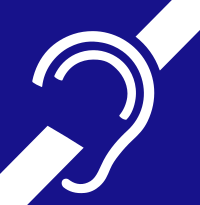
Photo from wikipedia
Background The COVID-19 pandemic may disproportionately affect the mental health of healthcare professionals (HCPs), especially patient-facing HCPs. Aims To longitudinally examine mental health in HCPs versus non-HCPs, and patient-facing HCPs… Click to show full abstract
Background The COVID-19 pandemic may disproportionately affect the mental health of healthcare professionals (HCPs), especially patient-facing HCPs. Aims To longitudinally examine mental health in HCPs versus non-HCPs, and patient-facing HCPs versus non-patient-facing HCPs. Method Online surveys were distributed to a cohort at three phases (baseline, July to September 2020; phase 2, 6 weeks post-baseline; phase 3, 4 months post-baseline). Each survey contained validated assessments for depression, anxiety, insomnia, burnout and well-being. For each outcome, we conducted mixed-effects logistic regression models (adjusted for a priori confounders) comparing the risk in different groups at each phase. Results A total of 1574 HCPs and 147 non-HCPs completed the baseline survey. Although there were generally higher rates of various probable mental health issues among HCPs versus non-HCPs at each phase, there was no significant difference, except that HCPs had 2.5-fold increased risk of burnout at phase 2 (emotional exhaustion: odds ratio 2.50, 95% CI 1.15–5.46, P = 0.021), which increased at phase 3 (emotional exhaustion: odds ratio 3.32, 95% CI 1.40–7.87, P = 0.006; depersonalisation: odds ratio 3.29, 95% CI 1.12–9.71, P = 0.031). At baseline, patient-facing HCPs (versus non-patient-facing HCPs) had a five-fold increased risk of depersonalisation (odds ratio 5.02, 95% CI 1.65–15.26, P = 0.004), with no significant difference in the risk for other outcomes. The difference in depersonalisation reduced over time, but patient-facing HCPs still had a 2.7-fold increased risk of emotional exhaustion (odds ratio 2.74, 95% CI 1.28–5.85, P = 0.009) by phase 3. Conclusions The COVID-19 pandemic had a huge impact on the mental health and well-being of both HCPs and non-HCPs, but there is disproportionately higher burnout among HCPs, particularly patient-facing HCPs.
Journal Title: BJPsych Open
Year Published: 2022
Link to full text (if available)
Share on Social Media: Sign Up to like & get
recommendations!